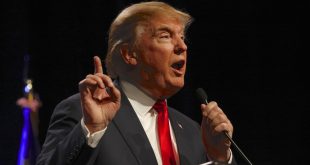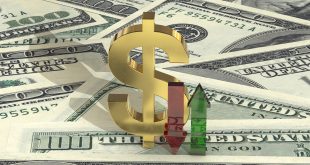On Thursday, July 3, the U.S. House of Representatives passed President Donald Trump’s “One Big Beautiful Bill” with a razor-thin 218-214 vote, following Senate approval on July 1 in a 51-50 tiebreaker led by Vice President JD Vance. This sweeping legislation, now awaiting Trump’s signature by his self-imposed July 4 deadline, promises historic tax cuts, enhanced border security, and energy sector boosts, but critics warn of its $3.3 trillion deficit impact. This article explores how the bill’s pro-growth policies could reshape the economy while raising concerns about fiscal sustainability and social program cuts, urging policymakers to balance ambition with long-term stability.
Tax Cuts to Fuel Growth
The cornerstone of the “One Big Beautiful Bill” is the permanent extension of the 2017 Tax Cuts and Jobs Act, averting a 22% tax hike for the average taxpayer. It delivers an additional $1,300 tax cut for families of four and up to $13,300 in take-home pay, alongside $11,600 in potential wage increases, according to the Council of Economic Advisers. Key provisions include no taxes on tips, overtime pay, or Social Security benefits (with a $6,000 deduction for seniors earning under $75,000) and a temporary $2,000 child tax credit increase until 2028. The bill also raises the state and local tax (SALT) deduction cap from $10,000 to $40,000 for households earning up to $500,000, a win for blue-state Republicans. These measures aim to boost household incomes and stimulate economic activity, with an estimated 5.2% GDP growth over four years.
Border Security and Energy Investments
The bill allocates $46.5 billion to complete Trump’s border wall, $5 billion for Customs and Border Protection facilities, and $6 billion to hire and retain Border Patrol agents, aligning with Trump’s campaign pledge for a secure border. It also introduces a $100 asylum application fee and funds for 10,000 new ICE personnel to support deportations. On energy, the legislation reverses Biden-era restrictions, repealing the methane tax and unlocking oil and gas development on federal lands. It renews 100% immediate expensing for equipment, machinery, and R&D, projecting $750 billion in small business growth and over 1 million new jobs annually. These steps aim to restore U.S. energy dominance and bolster domestic industries.
Deficit and Social Program Concerns
The Congressional Budget Office estimates the bill will add $3.3 trillion to the federal deficit over a decade, with a $5 trillion debt ceiling increase sparking opposition from fiscal conservatives like Senators Rand Paul and Susan Collins. Cuts to Medicaid ($700 billion) and SNAP ($267 billion) over 10 years, including stricter work requirements and state cost-sharing, could leave 11.8 million Americans without health coverage, critics argue. Democrats, led by Senate Minority Leader Chuck Schumer, decry the bill as a betrayal, warning of electoral backlash in 2026 midterms. The White House disputes these forecasts, claiming economic growth will offset costs, but the deficit trajectory remains a contentious issue.
Balancing Prosperity and Prudence
The “One Big Beautiful Bill” offers transformative economic potential through tax relief and pro-growth policies, resonating with voters seeking prosperity and security. However, its fiscal risks and social program cuts demand scrutiny. Policymakers keep monitoring economic indicators and adjust policies to mitigate deficit growth while preserving safety nets. Investors and citizens are keen on tracking implementation details and midterm political shifts. Without careful oversight, the bill’s promise of a “golden age” could strain fiscal stability, challenging America’s economic future.

 Noor Trends News, Technical Analysis, Educational Tools and Recommendations
Noor Trends News, Technical Analysis, Educational Tools and Recommendations




